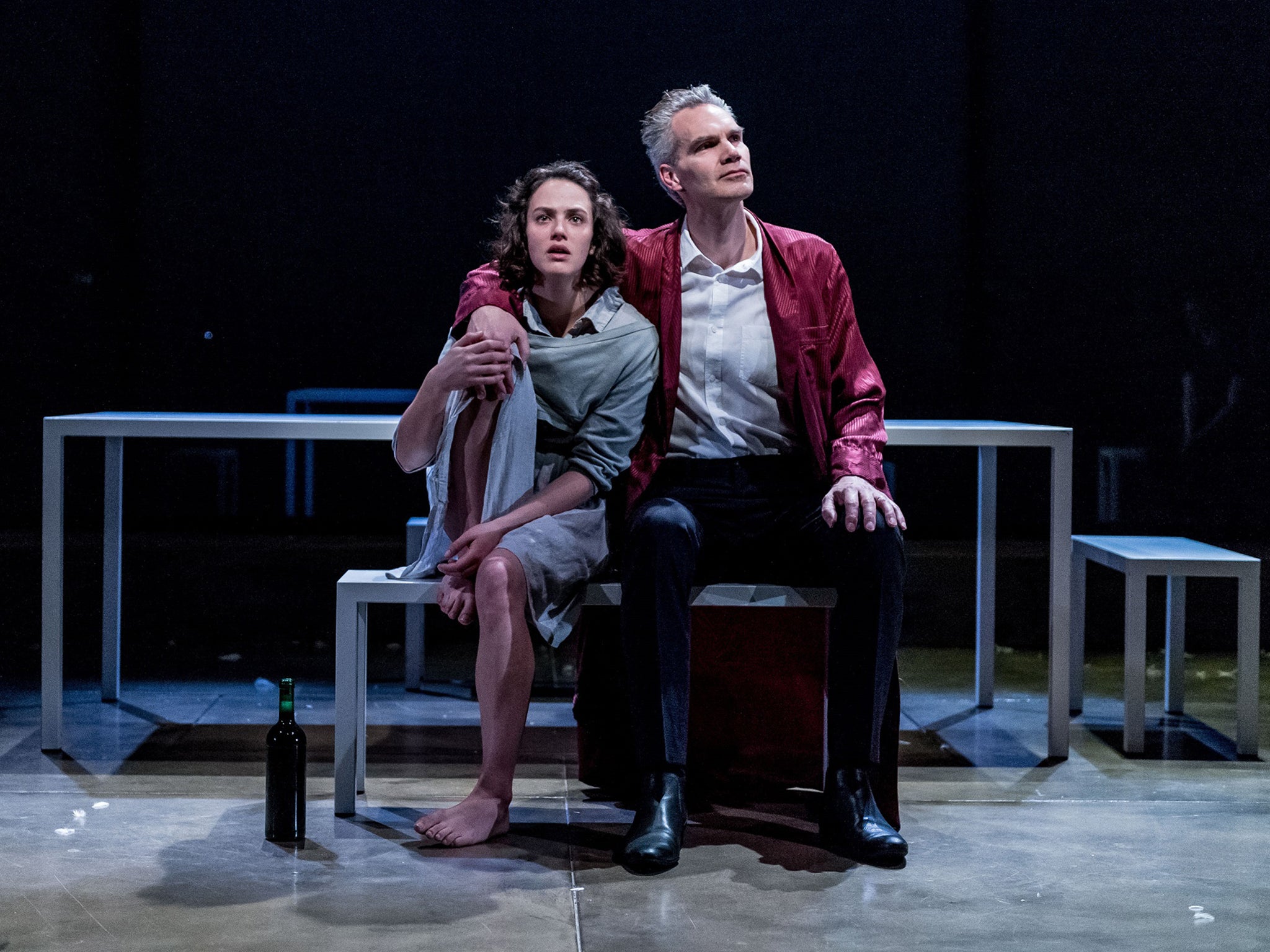Oresteia, Almeida, review: Daring and deeply disquieting
Jessica Brown Findlay of Downton Abbey fame is an arresting Electra

The Almeida launches its six-month season devoted to ancient Greek drama with Robert Icke's daring and deeply disquieting free adaptation of the Oresteia.
How do you stop a seemingly endless cycle of tit-for-tat killings? How do you contain the revenge principle within a system of judicial process and democratic order? Icke's version – transplanted to a generic 21st century and performed on a minimalist set by Hildegard Bechtler of sliding screens that creepily shift between translucent and opaque - tackles the questions raised by Aeschylus's great trilogy in a fiercely fresh manner that takes nothing for granted and purposefully leaves you plagued by doubts rather than placated by any sense of catharsis at the end of its 3 ¾ hours running time.
The proceedings conform to the basic template of blood cascading from one generation to the next. But the act that initiates this - Agamemnon's killing of his daughter Iphigenia in order to wage the Trojan War - is expanded by Icke from a back story embedded in the first chorus of the original into a superb drama in its own right. The pain and horror of this triggering murder are heightened by the atmosphere of doomed domesticity in a production where the ritual of a fractious family dinner is one of the configurations that echo eerily down the years. Angus Wright's rangey, conscience-racked Agamemnon is clearly a devoted father and I don't think I have ever felt the agony of his dilemma more keenly than here where, prevailed on to sacrifice Iphigenia for the higher good, he dandles the trusting little girl on his knee while she's plied with a hushed-up fatal overdose.
At the same time, Icke questions the patriarchal assumptions of the trilogy that ends in a law court where men are inherently favoured and the killing of a mother is deemed less culpable than the slaughter of a husband. The adaptation complicates the issue by a framing device of having the matricidal son Orestes (a thoughtfully anguished Luke Thompson) reconstruct his memory of events for a therapeutic inquisitor. The evidence is shown to be disputed and fragmentary in the resulting dream-like trial but, though he's acquitted on a casting vote, this Orestes, released into bewildering freedom, knows that he's not innocent.
Jessica Brown Findlay, of Downton Abbey fame, is an arresting Electra, strickenly musing on the dimensions of her paternal loss: “I imagine him and the sheer, sharp size of how gone he is”.
But the towering performance of the evening comes from Lia Williams as Klytemnestra. She shows you the terrible nervous strain of the years of smiling diplomatic restraint required of her until the war is over and then, with an eldritch shriek, the transporting exultancy of a blood-letting that is like a blood transfusion to her: “It's like liquid rightness pumping into arteries. He's dead; I'm alive”.
The diminishing returns of such cyclical vengeance are signalled by excellent touches such as having Angus Wright double her lover, Aegisthus, and by other gliding, ghostly recurrences. This Klytemnestra is never simplified into a monster, though, which makes the gender-biased conclusion all the more troubling. A terrific start to the season.
To July 18; 020 7359 4404
Join our commenting forum
Join thought-provoking conversations, follow other Independent readers and see their replies
Comments
Bookmark popover
Removed from bookmarks